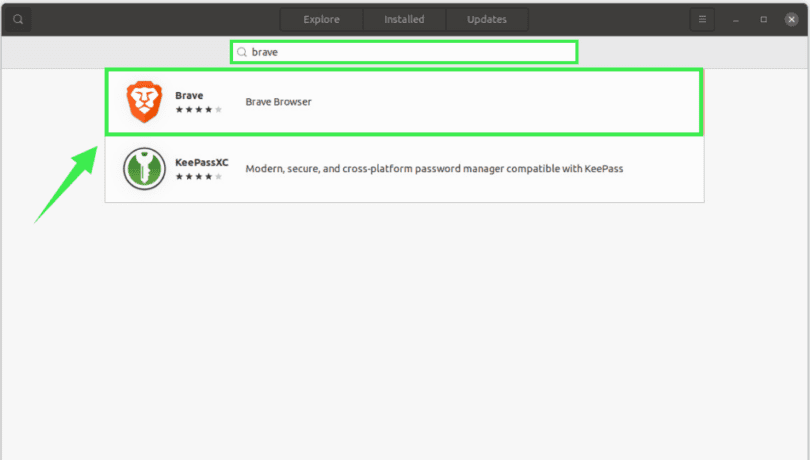

This will allow users to install extensions that they already used before. It should be noted that is based on Chromium, the same engine that gives life to Opera, Vivaldi or Microsoft Edge, among others. It has been a long time since available in beta, allowing the community to experiment with its features and report bugs.īrave 1.0 reaches users with diverse features focused above all on offering privacy and speed while browsing.

A browser that aims to stand up to Chrome and Firefox, both on computers and mobile devices. In the following lines we are going to see how we can install it from the repository in Ubuntu 16.04, Ubuntu 18.04, Ubuntu 19.04 and Ubuntu 19.10.Īfter 4 years in development, Brave Software has released the first stable version of its Brave web browser. Brendan Eich, the creator of the JavaScript programming language, is primarily responsible for the project. It also claims to protect the privacy of users by sharing less data than other browsers. This is the stable version of this open source web browser, with blocking ability for online ads and trackers, by default. Now we will update apt with the new sources.In the next article we are going to take a look at Brave 1.0. Then force update /etc/os-release source /etc/os-releaseĪnd then add the repo to apt echo "deb stretch main" | sudo tee /etc/apt//brave-browser-release-stretch.list Next, we’ll add the gpg keys to apt… $ curl -s | sudo apt-key -keyring /etc/apt//brave-browser-release.gpg add. So, let’s make this easy for you and modify what we need to modify and move on with our lives.įirst, we’ll enable user namespaces… $ echo kernel.unprivileged_userns_clone = 1 | sudo tee /etc/sysctl.d/nf

The documentation to install Brave on Debian is not too specific, because the install directions include details for other distros that break on Debian.įor example, the $UBUNTU_CODENAME $ echo "deb $UBUNTU_CODENAME main" | sudo tee /etc/apt//brave-browser-release-$.list


 0 kommentar(er)
0 kommentar(er)
